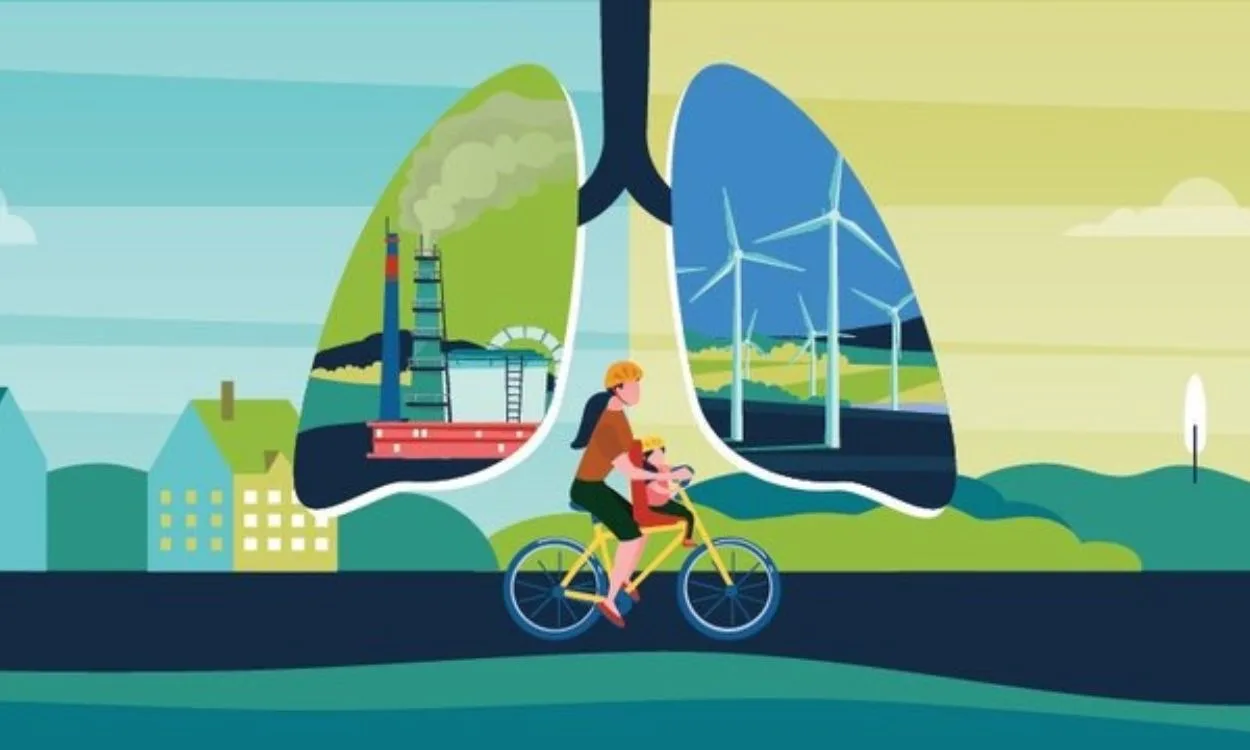How Does Climate Change Affect Lung Health?
Climate change, a pressing issue that affects the entire globe, has far-reaching consequences on various aspects of our lives, including human health. One area of concern is the impact of climate change on lung health. In recent years, there has been growing evidence linking changes in climate to respiratory problems and an increase in lung-related illnesses. This article explores the ways in which climate change can affect lung health and offers insights into how individuals can protect themselves.
1. Air Pollution
Air pollution is a major consequence of climate change and has a detrimental effect on lung health. As global temperatures rise, certain weather conditions, such as heatwaves and stagnant air, become more frequent. These conditions increase the concentration of pollutants in the atmosphere, leading to poor air quality.
- Increased Particulate Matter: Rising temperatures can contribute to the formation of fine particulate matter (PM2.5) in the air. These tiny particles, often emitted by industries, vehicles, and natural sources, can penetrate deep into the lungs and cause respiratory issues.
- Exacerbation of Allergies and Asthma: Climate change can also worsen allergies and asthma symptoms. Higher levels of carbon dioxide in the atmosphere can lead to increased pollen production, triggering allergic reactions. Additionally, heatwaves and high ozone levels can exacerbate asthma symptoms and respiratory distress.
2. Wildfires and Smoke
Climate change has been linked to an increase in the frequency and intensity of wildfires worldwide. Wildfire smoke contains a complex mixture of pollutants, including particulate matter and toxic gases, which can have severe health effects, particularly on the respiratory system.
- Respiratory Irritation: Inhalation of wildfire smoke can cause irritation in the respiratory tract, leading to coughing, wheezing, and shortness of breath. Individuals with pre-existing respiratory conditions, such as asthma or chronic obstructive pulmonary disease (COPD), are particularly vulnerable.
- Increased Risk of Infections: Wildfire smoke can compromise the immune system and make individuals more susceptible to respiratory infections, such as bronchitis and pneumonia. This is especially concerning for vulnerable populations, including the elderly, children, and those with weakened immune systems.
3. Extreme Weather Events
Climate change is associated with an increase in extreme weather events, such as hurricanes, storms, and heatwaves. These events can have direct and indirect impacts on lung health.
- Heat-Related Illnesses: Heatwaves can be especially dangerous for individuals with respiratory conditions. High temperatures can worsen symptoms and lead to heat-related illnesses, such as heat exhaustion and heatstroke. Furthermore, the increased energy demand for cooling during heatwaves contributes to higher levels of air pollution.
- Displacement and Crowded Living Conditions: Extreme weather events, such as floods and storms, can displace communities and result in overcrowded living conditions, which can increase the risk of respiratory infections. Overcrowding, poor ventilation, and limited access to healthcare facilities can contribute to the spread of diseases.
Protecting Lung Health in a Changing Climate
While the effects of climate change on lung health are concerning, there are steps individuals can take to protect themselves and mitigate the risks.
- Reducing Exposure to Air Pollution: Stay informed about air quality levels in your area and take precautions on days when pollution levels are high. Avoid outdoor activities during peak pollution times and consider using indoor air purifiers to improve indoor air quality.
- Being Prepared for Wildfires: Stay updated on wildfire situations in your region and follow evacuation recommendations if necessary. During wildfire events, limit outdoor activities and keep windows and doors closed to prevent smoke infiltration. If you have respiratory conditions, consult your healthcare provider for personalized advice.
- Ensuring Good Indoor Air Quality: Create a healthy indoor environment by keeping your living spaces well-ventilated, using natural cleaning products, and avoiding smoking indoors. Ventilate kitchens and bathrooms properly to minimize the buildup of humidity and mold.
Fitpaa: Your Path to Optimal Lung Health
In the face of climate change and its impact on lung health, tools like the Fitpaa app can be valuable resources for individuals looking to achieve and maintain optimal health. Fitpaa’s personalized fitness plans and real-time guidance can help you strengthen your respiratory system, improve overall fitness, and manage any existing respiratory conditions.
Download the Fitpaa app today to access a host of features designed to support your health goals. With the guidance of fitness coaches, nutritionists, and doctors, you can develop a comprehensive plan tailored to your needs. Fitpaa’s innovative technologies, such as metabolism monitoring and real-time guidance, ensure that you receive the support necessary to achieve your lung health and fitness goals.
Remember, your health is a priority, and with the right tools and guidance, you can navigate the challenges of climate change while safeguarding your lung health. Start your journey with Fitpaa today and experience the joy of optimal health and well-being.
Note: Fitpaa is committed to catering to the unique needs of the Indian population and offers customized plans and support based on Indian metrics and lifestyle patterns.









